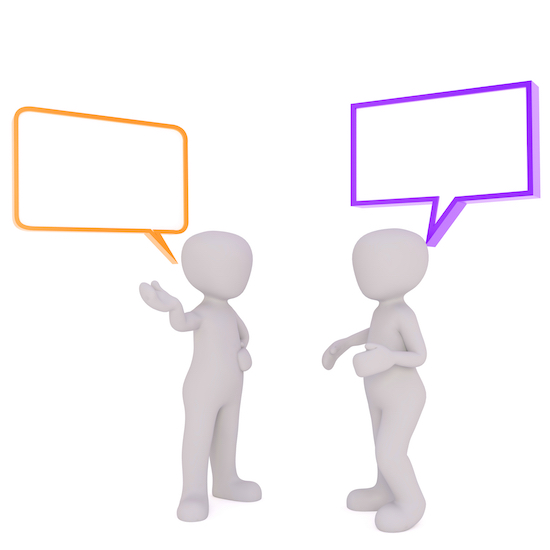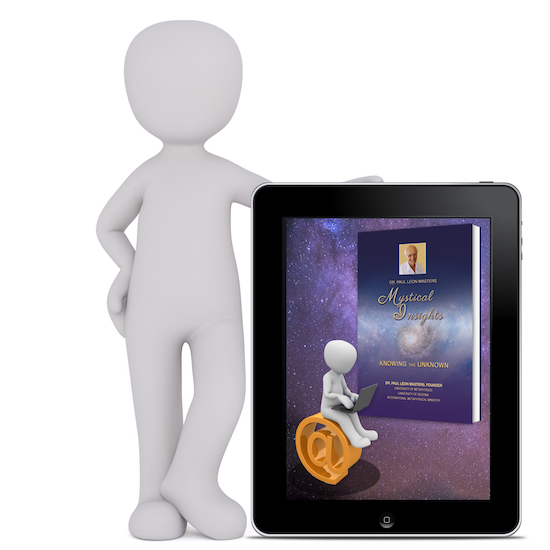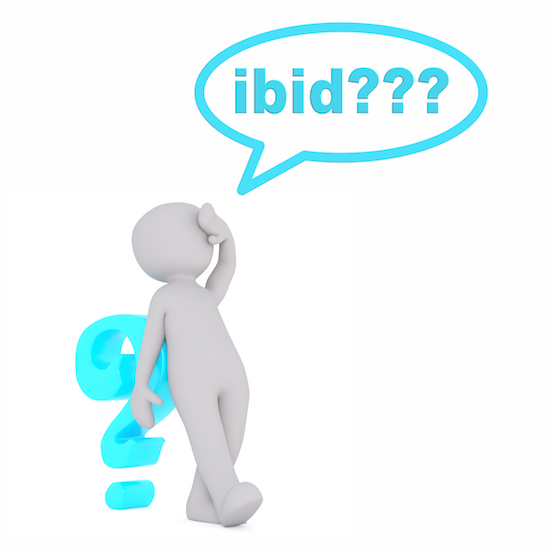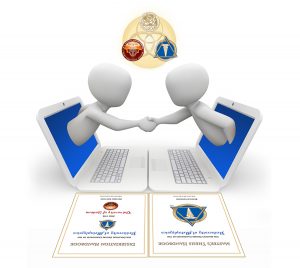Periodically students contact us before they submit their papers because the word count, and page count is way too high. When papers are too long, it is usually for the following reasons:
- Too many unnecessary definitions are included. The only time you would need to include a definition is if it is for something really unusual that you don’t think the Thesis/Dissertation Committee would understand.
- Too much history is included. History is really interesting, but rarely important to the points you need to make about the overall topic of your paper.
- Too much non-essential information is included. You only need to include that which proves/supports the goal you want to communicate through your paper’s topic. Anything else is extraneous information that is actually detracting from your paper.

Some students spend more time on their Works Cited chapter than needed by listing sources they did not quote or paraphrase in the body of their thesis or dissertation.
As part of the thesis or dissertation review process, we cross-reference your Works Cited to the text in the body of your paper. The only sources that need to appear in the Works Cited are those you either quoted from or paraphrased (with in-text citations). Anything else does not count toward your minimum number of required sources and should, therefore, be left out.
On the flip side, every single source you quote or paraphrase should be listed in the Works Cited section, and credit should be given to all quoted or paraphrased material via in-text citations as instructed in the thesis and dissertation handbooks.

We tell you to paraphrase more and quote less, but what does that mean?
Instead of stringing long quotes together to write your thesis or dissertation, we encourage you to paraphrase a good portion of your material, which means write the information your sources are conveying in your own words, with quotes sprinkled in for emphasis. Why? Because this tells us you fully understand what you read. AND, you will learn the information on a deeper level this way.
Paraphrasing is the best way for students to thoroughly grasp their subject, because it pushes the brain to learn better, remember longer, and apply the information they read. Through paraphrasing, the knowledge you attain become an “experience” that lasts a lifetime.

To receive a handy Paraphrasing Tips page that includes: an easy way to get paraphrasing right, how to do in-text citations for your paraphrased material, which voice you should use, and what the rules are for paraphrases that span more than one page, email us at uos@metaphysics.com.
We want to make your writing journey pleasant and rewarding!
Students have expressed confusion lately as to how to do in-text citations for eBooks.
Indicate the location by using the chapter number in which you found the information you are paraphrasing or quoting. Most likely you will be citing the author in your introductory text for the citation (if not, put the author’s name in the in-text citation, too). Of course, the full citation of the work will be in your Works Cited entries, using eBook instead of print at the end.
Here is an example from Chapter 2 of Deepak Chopra’s book, Overcoming Addictions.
Deepak Chopra, in his Kindle book Overcoming Addictions, helps us understand how the modern world has produced addictions beyond substances: “Addiction to work, to destructive relationships . . . to television” and, I would add, to the computer (Ch. 2).

Note: If a chapter number is not available, we will accept the title of the chapter instead. Example (Ch. “Nurturing the Spirit”)
Many students don’t understand how to quote someone who is quoting someone when they are writing their thesis or dissertation. Let’s see if this makes it easier to grasp. When you are using material in which your source author quotes another author’s remarks; i.e., when what you quote or paraphrase contains what is itself a quotation, type the abbreviation “qtd. in” (which means “quoted in”) before the indirect source you are citing in your in-text citation.
For example, if Deepak Chopra is quoting Carl Jung, your TEXT would attribute the quote to Jung, but your in-text CITATION would say (qtd. in Chopra). Make Sense?

MORE HELP WITH QUOTATION MARKS… Are you working on your thesis or dissertation and don’t know how to handle quotation marks when you have quotes within quotes?
Whenever you have a quote contained within a quote, the inside quotation marks should be single quotation marks (‘ ’) while the outside quotation marks at the beginning and end of the quote should be double quotation marks (“ ”). This does mean that at times you may have three quotation marks that look like this (’”) at the end of a sentence or three (‘“) at the beginning.
Example: Everything in the universe exists in the, “Mind of The All in which we ‘live and move and have our being’” (The Kybalion 15-16).

Once in a while, a student asks how to handle quoting from books that are written by an author, but they are actually writing what has been channeled by a spirit entity.
When this is the case, the Works Cited lists the book under the Author’s last name, but you should also have the name of the entity the author is channeling, too, if identified. The author’s name would also need to be in the text or the in-text citation, and when you first introduce the book, you would need to tell us that the author channeled the information from “whomever.” However, if both the author of the book and the entity are contributing information to the same book, then you must make it clear who is doing the speaking in the text you quote.
This makes more sense when you actually see it, so here are two good examples of this.
The Works Cited Listing (Abraham is the entity that Ester and Jerry Hicks channel):
Hicks, Ester and Jerry (with Abraham). The Vortex: Where the Law of Attraction Assembles All Cooperative Relationships. Carlsbad, California: Hay House, 2009. Print.

We rarely have a student submit a paper using (ibid) when writing in-text citations, but it does occasionally happen. Please note our University does not condone using (ibid). For those of you who don’t know what (ibid) means, let me explain. Let’s say you have three paragraphs in which you are quoting or paraphrasing Dr. Masters. Some schools will allow you to give the proper in-text citation for the first quote/paraphrase, and use (ibid) for the second and third ones. However, our university instructs you to write the in-text citation for each quote or paraphrase from the same source. So in this case, you would be writing it three times. The reason for this is that too many students misuse (ibid) for one, and two, it saves time when grading your paper not to have (ibid), which means that we can pass students sooner!

Need help selecting the doctoral degree that will best meet your goals, needs, and dreams? Then watch the Selecting Your Right-Fit Metaphysical Degree webinar. This incredibly, informative session takes you through an eight-step process for choosing your ideal degree. Detailed descriptions are given for each degree offered by the University to help you make your choice. As an added bonus, you will learn how you can use your degree and see how University graduates are using theirs. Here is the Link: https://vimeo.com/254350404

Current students can change their Doctoral degree specialty, through our Online Center, or by sending a request to the Thesis and Dissertation Review committee uos@metaphysics.com
Current students and graduates also have the opportunity to enroll and earn a second or third Doctoral degree with affordable scholarship tuition which allows them to acquire further knowledge, expand their training, and provide more opportunities for their career fulfillment.
The requirements for earning an additional Doctoral Degree are:

- Submitting an additional dissertation in alignment with the new degree and different from previously completed dissertations
- IMM affiliation status is current
- Additional Degree tuition paid in full.
Check out our Doctoral Degree Specialities by clicking on the school of choice below:
- UOS Doctoral Degree Specialties: https://universityofmetaphysics.com/doctoral-degrees-uos/
- UOM Doctoral Degree Specialties: https://universityofmetaphysics.com/doctoral-degrees-uom/
Because a thesis or dissertation is a research paper targeted at proving a theory––rather than an essay, report, or how-to account––one of the deepest pits a student can fall into is writing primarily from their own knowledge base. This is because the foundation of a thesis or dissertation––or burden of proof––must be based on the information provided by the expert sources studied.
The Review of Literature, for example, should not contain any of your personal experiences, own ideas, or information that is not attributed to sources. The Review should solely be a restating of your sources’ material with in-text citations. In other words, your Review should tell readers about your sources’ ideas, studies, opinions, and writings, but in your own words and voice through mostly paraphrasing and some quotes. However, you should not at this point analyze it or add to what sources conveyed. Your opinion and analysis of your sources’ information and viewpoints belongs in the Discussion. This means your Review will be rich with in-text citations in every paragraph, since all the information presented in the Review will have come from your sources, rather than your own knowledge base.

Since the type of thesis or dissertation you write for UOS or UOM is a research paper, all claims should be substantiated by a reputable source’s viewpoint, rather than originate from your own knowledge base––most especially in the Review of Literature.
If the Thesis or Dissertation Committee returns your paper and asks you to identify a source with an in-text citation for a block of information, but the text you wrote is actually your own words or thoughts, it means you wrote from your own knowledge base, rather than finding a source to speak for you. All claims you make must be grounded in research, rather than be something you already know and are reporting on. Therefore, to fix your paper, you must find a source that says what you want to say for those sections highlighted by your advisor. Then, replace your information with quoted and/or paraphrased text from your new source (with in-text citations and Works Cited listings). For example, if a student wrote:

Because the Introduction chapter of a thesis or dissertation is the first chapter that readers will encounter, it is essential to understand that it will set the tone for the rest of your paper. Therefore, it is a crucial component that should not be taken lightly.
The Introduction should provide a brief and precise synopsis of your paper’s topic and what the contents of your paper will reveal; communicate an overview of the objectives that you wish to reveal about your paper’s topic.
In plain English, another way of looking at this chapter is that you want to communicate to readers why your subject is important and what they can expect to read. In other words, offer an overview of your topic, its significance, and the objectives you wish to sustain and support through source material. You can also reveal a limited amount of information as to what your topic means to you personally and why it is important to you.
The typical length of an Introduction should be between three to six pages.

As you might imagine, many of our UOM and UOS students are experts in the area of metaphysics they choose for their paper. One would think this would make it easier to write their thesis or dissertation. However, writing a research paper can sometimes be more difficult for these learned individuals.
Why?
Because theses and dissertations are research papers, all claims must be substantiated by a source, rather than come from your own knowledge base––most especially in the Review, since it is a showcase solely for your sources’ viewpoints. If we come across areas in your paper where you make specific claims but don’t give us an in-text citation because the information comes from your own database, we will request that you rewrite it by finding a source to speak for you; i.e., paraphrasing a source that says what you want to write, along with in-text citations and Works Cited listings.

Because of their psychic sensitivities, our students sometimes do enter into channeling spirit while working on their papers. It’s a beautiful and enlightening experience.
However, it is considered a personal experience, and does not fulfill the academic research that is required for a thesis or dissertation. Since it is a personal experience, you can use the channeled information heavily in the Introduction and a small amount in the Discussion as it helps you apply the information from your Review of Literature to your statement of purpose──as long as you identify the channeled information with in-text citations and Works Cited listings.
If your spirit(s) identify themselves, your in-text citation would look like this (Spirit Name, n.p.)
Your Works Cited listing would look like this: Spirit Name, channeled information by author: Your Name. n.p. stands for no page.

Only if you write from your head instead of grounding your paper in research and giving credit to the source.
Most students have a favorite author, one whose material they’ve read extensively. For this reason, we want to caution you on an easy-to-make mistake made by some students, who are very familiar with certain metaphysical experts or writers.
Since theses and dissertations are research papers, you must back up everything you write about these well-studied individuals’ theories, work, and lives with cited quotes and paraphrases. Some students accidentally write too much uncited commentary that comes from their own knowledge base, which is really easy to do when you’ve thoroughly read someone and followed their works.

Even though what you know by memory factually comes from a certain writer or expert, you still must connect it to a tangible source, such as a book or report, and cite the location the information can be found.
While your Review of Literature should be the longest chapter of your paper, it shouldn’t be to the detriment of your Discussion.
If you find your Discussion to be too short, which would be anything less than four to six pages for the average paper (but ideally longer), you likely included too much of your own analysis and discussion in the Review of Literature. This is a common mistake students make.
The Review of Literature shouldn’t include too much of your opinion of what you read as much as simply reporting in your own words what the authors are conveying. The Review lays the groundwork of your Discussion. Then in the Discussion, you analyze what they wrote, and put the pieces together, giving us your opinion on how their information proves your statement of purpose. This is what we mean by “meaningful conversation.” The Discussion uses the points made by your sources in the Review to argue your statement of purpose in the Discussion.

If you think this is the case with your paper, we suggest you relocate some of that Review text (discussion and your own opinion) into your Discussion.
